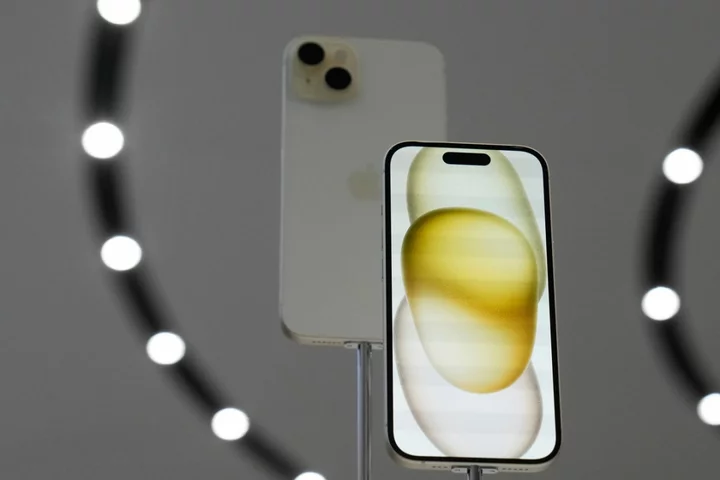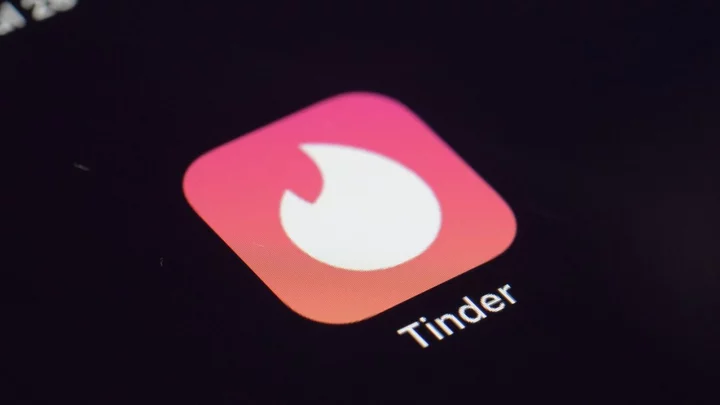
How Apple gave people access to a library full of classical music – and tried to make it accessible
Earlier this year, Apple launched Apple Music Classical as a standalone music app that comes included in the price of Apple Music. It was an unusual move for a streaming platform perhaps more associated with Drake and Taylor Swift. And building it was a major undertaking, given the vast complexity of classical music libraries and the difficulties in navigating them. Apple Music Classical continues to grow. In its latest move, Apple announced a new partnership between Apple and the London Philharmonic Orchestra with the release of a live recording of Berlioz’s The Damnation of Faust coming on 3 November. This is just one of the partners Apple Music Classical has. From day one, the Vienna Philharmonic Orchestra was a partner. The content from that orchestra is extensive, with recordings dating back to 1929. Some of it is unique to Apple and this exclusive content alone has already been streamed millions of times. Recently, senior staffers at the app talked exclusively to The Independent. Apple Music Classical came about because Apple realised that classical artists and fans were really not being served well by streaming. As part of its mission to use its engineering knowhow to fix this, it bought Primephonic, widely recognised as the classical streaming platform that succeeded where others had failed. It took more than a year of work before Apple was happy with what it had created and its release to a highly positive response. Now, classical music lovers don’t have to clamber past Justin Bieber and Taylor Swift to get to Bach and Rachmaninoff. Classical music provides challenges other kinds of music don’t, or at least not to the same extent. Instead of playing an album, artist or track, classical lovers have favourite composers, orchestras, soloists and so on. The search parameters are mind-boggling. Apple is well-equipped, with more classical music than anywhere else on the planet, and Primephonic’s brilliant data metrics were a starting point from which Apple’s engineers and expertise transformed the experience. Want to listen to Vivaldi’s Spring from the Four Seasons? Apple has 1,243 versions for you to choose from. If that sounds overwhelming, Apple has a solution: careful navigation with sophisticated search. Just as Apple Fitness+ has a mantra that everybody is welcome, no matter their fitness level or knowledge, Apple Music Classical is designed for seasoned devotees and newcomers alike. “If you didn’t know much about the world of classical, Apple Music Classical offers a structure so you can get into it. It’s centuries of music, right, so where do you start? It gives you an opportunity to get some perspective on it, explains Mariana Pimenta, who works in operations at Apple Music Classical, saying: “We don’t expect everybody who downloads it to be a professional musician, and we want everyone to experience classical music. Our goal is to bring as many people as possible to this service.” Marina Boiko is an editor. She goes on, “The story of classical is a great place to start and we’ve made sure there’s enough beginner-friendly content, such as playlists of periods or genres.” Not all traditional classical listeners will be especially tech-savvy, but that may not be a problem, as Guy Jones, global head of classical editorial, explains. “Lots of classical fans are new not just to technology but to streaming. The whole point of this product is to bring classical to streaming. It’s the musical genre that wasn’t really being streamed because the experience was previously so bad. The technical side of things may be less of a problem, especially as Apple’s guidelines around human interface design are baked into our product, but the challenge is more in explaining that streaming opens up opportunity and accessibility. “When I was first getting into classical music, I had to buy CDs. I had to choose carefully what CD I wanted to buy each month. The ability now to just pick a random composer and ask, ‘Do I like this composer?’ That ability to let you dip your toe in the water, I think that’s the real power of something like Apple Music Classical, and not just for beginners, for the experts too.” The absence of the Primephonic app while Apple Music Classical was being developed was down to getting it right, Carlos Anez Gomez, from the metadata team, says. “It took us time, but it paid off because we needed to take care with every single point and I think we managed to do it, both in human terms and the algorithms: we made a great balance between computer work and human work. Where Primephonic had a relatively small catalogue, Apple Music Classical has a huge number of albums, for example.” Boiko adds, “No one knows everything that has ever been recorded in the history of classical music. And in that sense, we put a lot of emphasis on the discovery element, especially when it comes to the underrepresented composers.” Each work has its own place, called the work page in Apple Music Classical, where you can find all the recordings, so it’s easy to compare different versions. Primephonic’s unique data continues to be essential. “The structured metadata, that’s the uniqueness of it,” Boiko says. “It makes it easy to find things even if you don’t know what you want. That structure, it’s what classical music apps needed and didn’t have. There are many ways not to get lost because you can search by ensemble, by orchestra or even by instrument.” The work page is important, then. As Gomez says, “People discovering music can check this work page and say, ‘Aha, there is a new piece by a certain composer and I have a work page which will give me all the information that I need.’ I discover music every day going through this.” Another key element is the playlist. Boiko goes on, “Playlists are structured in different ways. So, genre playlists are the best way for you to start listening to classical music. The story of classical is a narrated cycle, that guides you through all the centuries of music. “Then there are more specific playlists. You can listen to duets and trios and quartets or quintets and then it gives you an overview of all this chamber music and maybe something that you wouldn’t necessarily find on other platforms.” Jones explains the importance of the human touch. “I don’t think it’s widely known that at Apple it’s human curators behind the playlists. The assumption is that it’s all algorithms now. But for classical that’s a particularly important point, because it’s such a huge genre. People talk about classical like it’s one block and it’s really a thousand years of music from pretty much every country in the world. Our job is breaking classical into smaller chunks, to give people the agency to discover what they like, and to go down their own rabbit holes and feel more confident exploring.” How does Apple Music Classical find a way to appeal to everyone? Jones explains, “It’s a really hard thing to do, to cover that broad spectrum. It’s a constant tightrope walk because you have very knowledgeable people with clear ideas about what they think the genre is as well as trying to please newcomers. We strike that balance in terms of our editorial strategy by being as authentic and genuine as possible and conveying our passion for classical. For those hardcore classical nerds a big part of the product is the browse and the search as much as it is the editorial, I think for the newcomers, they use the editorial a lot more if they don’t know what to search for.” As it grows, there’s a lot more for Apple to do, and the team are working on changes and improvements. Here’s a last word from each of them about why the app matters. Gomez says, “People will discover that along with any classical library that they can have their access quickly to any recording they have.” As Boiko says, “It’s a lot of music. I think there’s not one person that wouldn’t find something they would love here.” Boiko has a different take on the importance of Apple Music Classical: “Maybe the listeners will have emotional responses to it. And at the end of the day music is there to make our lives better. It definitely enriches our lives.” Finally, Jones comments, “The thing about human curation is we are ultimately making a human decision. And so, for instance, if you choose a recommended recording for Beethoven’s Fifth Symphony, you’re instantly upsetting everyone who has a strong opinion about their favourite. That’s what comes with the human aspect: this is our opinion, our recommendation, but you have the other recordings there to explore if you want them.” Read More Apple is about to add a host of new features to the iPhone The Apple Watch feature everyone has been waiting for has finally arrived Apple’s plans for the future of AirPods might just have been revealed Apple TV+ and other subscriptions are about to get a lot more expensive What to expect Apple’s surprise, spooky upcoming launch Apple announces surprise event: ‘Scary fast’
2023-10-29 18:48

Musk says Starlink to provide connectivity in Gaza through aid organizations
(Reuters) -Elon Musk said on Saturday that SpaceX's Starlink will support communication links in Gaza with "internationally recognized aid organizations".
2023-10-28 23:29

Ford shares fall after pulling full-year forecast, wider losses in EV unit
By Shivansh Tiwary (Reuters) -Shares of Ford Motor Co closed down 12.3% on Friday, after the automaker reported a wider
2023-10-28 07:53

Elon Musk's X launches two new premium subscription plans
Elon Musk's social media platform X, formerly known as Twitter, rolled out two new subscription plans on Friday,
2023-10-28 04:16

iOS 17.2: Update bringing host of new changes including Journal app and iPhone 15 Pro features
Apple is preparing a new update that will bring a host of new features to the iPhone. Some of the tools were announced in June, when Apple first showed off its major iOS 17 update, such as the long-awaited Journal app. That uses machine learning to understand what people have done in a day, and encourages them to write about their activities to remember them. Some are unexpected. That includes new updates to the iPhone 15 Pro’s action button: now, users can press the button to bring up a translate option, which shows a window and lets people speak text to have it appear in another language. The action button was introduced with the iPhone 15 Pro last month, as a replacement for the mute switch that can be mapped to any activity. Apple did not say then that it was planning to introduce new actions for that button. The new update also lets people add stickers as reactions on messages, collaborate on Apple Music playlists, redesigns the Apple TV app and some widgets, and more. iOS 17.2 was released as a developer beta update this week. It will likely make its way to everyone’s phones in November or December, though it will be possible to get it earlier by signing up to Apple’s public beta channel. Those on the public updates received their own update this week, in the form iOS 17.1. But the changes introduced with that update are more limited, such as new settings for the StandBy mode that shows when a phone is placed on its side and an AirDrop feature that lets transfers continue over the internet when devices are separated. Read More The Apple Watch feature everyone has been waiting for has finally arrived Apple’s plans for the future of AirPods might just have been revealed Apple TV+ and other subscriptions are about to get a lot more expensive
2023-10-28 01:15

EU's von der Leyen to attend Britain's AI summit
By Martin Coulter LONDON Two of the European Union's most senior officials plan to attend Britain's artificial intelligence
2023-10-28 00:27

ChatGPT creators OpenAI form ‘Preparedness’ group to get ready for ‘catastrophe’
OpenAI, the creators of ChatGPT, have formed a new group to prepare for the “catastrophic risks” of artificial intelligence. The “Preparedness” team will aim to “track, evaluate, forecast and protect against catastrophic risks”, the company said. Those risks include artificial intelligence being used to craft powerful persuasive messages, to endanger cybersecurity and to be used in nuclear and other kinds of weapons. The team will also work against “autonomous replication and adaptation”, or ARA – the danger that an AI would gain the power to be able to copy and change itself. “We believe that frontier AI models, which will exceed the capabilities currently present in the most advanced existing models, have the potential to benefit all of humanity,” OpenAI said. “But they also pose increasingly severe risks.” Avoiding those dangerous situations will mean building frameworks to predict and then protect people against the dangerous capabilities of new artificial intelligence systems, OpenAI said. That will be one of the tasks of the new team. At the same time, OpenAI launched a new “Preparedness Challenge”. That encourages people to think about “the most unique, while still being probable, potentially catastrophic misuse of the model” such as using it to shut down power grids, for instance. Particularly good submissions of ideas for the malicious uses of artificial intelligence will win credits to use on OpenAI’s tools, and the company suggested that some of those people could be hired to the team. It will be led by Aleksander Madry, an AI expert from Massachusetts Institute of Technology, OpenAI said. OpenAI revealed the new team as part of its contribution to the UK’s AI Safety Summit, which will happen next week. OpenAI was one of a range of companies that have made commitments on how it will ensure the safe use of artificial intelligence. Read More WhatsApp update will change how you log in forever ChatGPT creator quietly changes core values from ‘thoughtful’ to ‘scrappy’
2023-10-28 00:19

Low-cost e-commerce rivals Shein and Temu shelve US court cases
By Casey Hall SHANGHAI Fierce rivals Shein and PDD Holdings-owned Temu have applied to end their legal fights
2023-10-27 23:17

Chipmaker Intel soars on signs of PC market recovery
By Samrhitha A Intel rose nearly 8% on Friday and sparked a jump in chip stocks after its
2023-10-27 21:54

Your brain doesn’t work the same on Zoom, scientists say
Your brain doesn’t work the same when you speak to someone on Zoom, scientists have confirmed. Neural signalling is significantly less when chatting to someone through a video call rather than having a face-to-face conversation, the new study found. When researchers watched the brain of someone talking in real life, they found that there was a detailed and complex system of neurological activity. On Zoom, however, that was dramatically less. It suggests that there is still something fundamentally lacking about speaking with someone online. People’s faces are not able to light up people’s brains in the same way, the researchers suggest. That is something of a surprise: current models suggest that the brain should process people’s faces in the same way whether they are on Zoom or in real life, given the features of them are the same. But the new study suggests that there really is something fundamentally different between the two contexts. “In this study we find that the social systems of the human brain are more active during real live in-person encounters than on Zoom,” said Joy Hirsch, a Yale professor who was the lead author on the new study. “Zoom appears to be an impoverished social communication system relative to in-person conditions.” To find that, researchers studied people’s brains in real time as well as looking at other signals, such as where people’s eyes moved. As well as increased neural activity, the researchers found that people’s eyes hovered for longer on the real faces, for instance. The two people’s brains also seemed to be more co-ordinated. That suggests that there are more social cues being shared between the two people, they said. “Overall, the dynamic and natural social interactions that occur spontaneously during in-person interactions appear to be less apparent or absent during Zoom encounters,” Professor Hirsch said. “This is a really robust effect.” The study suggests that face-to-face encounters remain very important, even as technology companies and others come up with new ways for us to interact with people remotely, the authors said. “Online representations of faces, at least with current technology, do not have the same ‘privileged access’ to social neural circuitry in the brain that is typical of the real thing,” said Professor Hirsch. The findings are described in a new paper, ‘Separable Processes for Live “In-Person” and Live “Zoom-like” Faces’, published in Imaging Neuroscience. Read More The Apple Watch feature everyone has been waiting for has finally arrived Scientists find surprise ‘layer’ underneath surface of Mars Apple’s plans for the future of AirPods might just have been revealed
2023-10-27 20:21

Tinder's new feature lets friends and family pick your dates
Tinder has introduced a feature that allows friends and family to take full control of your dating life – well, kind of. Dating debriefs with friends are a given with 75 per cent of singles admitting to discussing their dating life several times a month. Now, with Tinder Matchmaker, the platform is giving your nearest and dearest a say in the matter by allowing them to take over your profile and check out hopeful potentials. It works by inviting others, regardless of whether they have a Tinder profile or not, to view and suggest dates. But ultimately, the main user has the final say. "For years, singles have asked their friends to help find their next match on Tinder, and now we're making that so easy with Tinder Matchmaker," Melissa Hobley, Chief Marketing Officer at Tinder said. She continued: "Tinder Matchmaker brings your circle of trust into your dating journey and helps you see the possibilities you might be overlooking from the perspective of those closest to you." The popular dating app has partnered with rapper Coi Leray to bring the feature to life. "Handing your phone over to the friend group was the original vibe check. Obviously you want your friends to like whoever you’re crushing on, and Tinder Matchmaker is a fun way to get the bestie seal of approval even before the match," the 'Players' rapper said. Intrigued? Here's how to try out Tinder Matchmaker for yourself: A Tinder Matchmaker session can be started directly from a profile card, or within app settings. Users can share their unique link with up to 15 friends in a 24 hour period. After following the link, the matchmaker can either log in to Tinder or continue as a guest (after completing an age verification prompt and agreeing to Tinder’s terms as outlined). Matchmakers have 24 hours to play cupid before the session expires, where they can recommend profiles for the Tinder user but won’t be able to chat or send messages on their behalf. Once the session expires, Tinder users will have the opportunity to review the profiles their matchmakers’ Like for them. Profiles that received a Like from a matchmaker will be marked as a “recommendation” (profiles sent a Nope won’t change). The Tinder user still makes the final call on who to Like - but now knows who their friends are rooting for. How to join the indy100's free WhatsApp channel Sign up for our free Indy100 weekly newsletter Have your say in our news democracy. Click the upvote icon at the top of the page to help raise this article through the indy100 rankings.
2023-10-27 18:25

Entering AI era, Taiwan chip industry urges speeding up renewables push
By Sarah Wu HSINCHU, Taiwan (Reuters) -Taiwan's chip industry is ready to work with the government to achieve its 2050
2023-10-27 17:47
